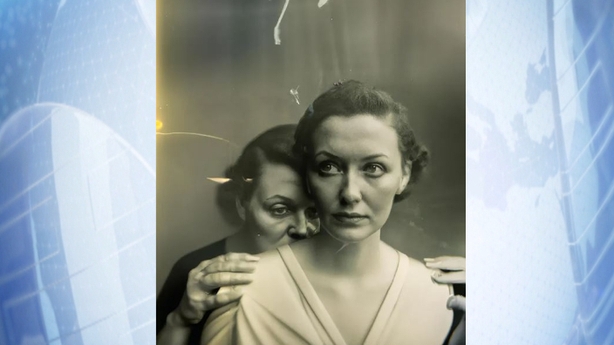The winner of a major international photography award has turned down his prize, after revealing that the image he submitted was generated by artificial intelligence.
German artist Boris Eldagsen's submission - entitled 'Pseudomnesia: The Electrician’ - was named the winner in the creative open category at the Sony World Photography Awards last month.
Mr Eldagsen said he had applied as a "cheeky monkey", in order to find out whether competitions were prepared for AI images to enter.
"They are not," he said.
He asked of the judges: "How many of you knew or suspected that it was AI-generated? Something about this doesn’t feel right, does it?"
Mr Eldagsen said that AI images and photography should not compete with each other in such competition.
"They are different entities," he said. "AI is not photography, therefore I will not accept the award."

He has called for an open discussion on the issue, saying it is needed in order to consider "what is photography and what is not".
Speaking to RTÉ News, Mr Eldagsen said that members of the photography community have since taken to coining the term 'Promptography', to describe generating images through AI.
Outlining his wider AI image collection on his website, he says that "just as photography replaced painting in the reproduction of reality, AI will replace photography".
In response, a spokesperson for the World Photography Organisation said that during discussions ahead of the announcement, Mr Eldagsen had informed them that the piece was a "co-creation", for which he says on his website he was "the director".
They added Mr Eldagsen had explained to them his focus had shifted to exploring "creative possibilities of AI generators", adding that he had "emphasised the image 'heavily relied on his wealth of photographic knowledge'".
"The Creative category of the Open competition welcomes various experimental approaches to image making from cyanotypes and rayographs to cutting-edge digital practices," they said.
They added: "As such, following our correspondence with Boris and the warranties he provided, we felt that his entry fulfilled the criteria for this category, and we were supportive of his participation.
"Additionally, we were looking forward to engaging in a more in-depth discussion on this topic and welcomed Boris' wish for dialogue by preparing questions for a dedicated Q&A with him for our website."
"As he has now decided to decline his award we have suspended our activities with him and in keeping with his wishes have removed him from the competition.
"Given his actions and subsequent statement noting his deliberate attempts at misleading us, and therefore invalidating the warranties he provided, we no longer feel we are able to engage in a meaningful and constructive dialogue with him."
Read more:
Why it's so easy to fall for fake AI images
They said they recognised "the importance of this subject and its impact on image-making today", but adding that the awards "always have been and will continue to be a platform for championing the excellence and skill of photographers and artists working in the medium".
Mr Eldagsen has said attempts towards an online discussion were "nonsense".
"They had so many options to use this for good. They used none of them," he said.
The incident comes at a time when AI images pertaining to real world events have been widely circulated in recent times, from viral images of Donald Trump being arrested, to Pope Francis being pictured in a large puffer jacket.
Such images' proximity to authenticity and plausability are what make them work so well, says Professor Alan Smeaton, founding Director of the Insight SFI Research Centre for Data Analytics.
He says people cannot detect AI images at first hand.
"We appeal or depend upon people's intuition to believe the distinction between what is and what is not plausible. But that's not a reliable [or] sustainable thing to depend upon," he added.





